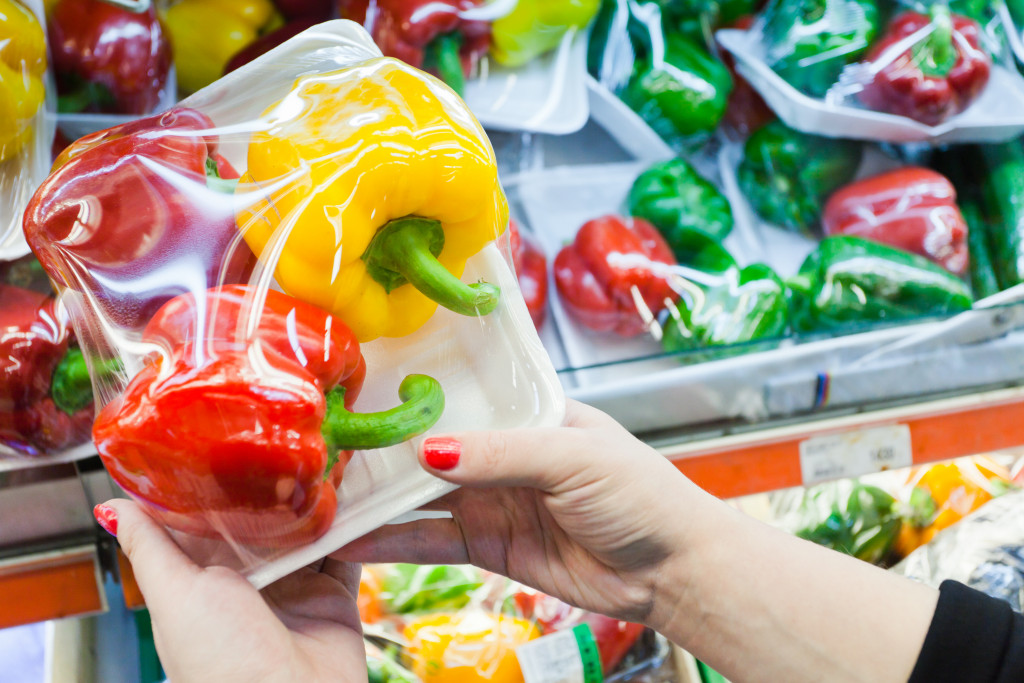The plastic problem is a global issue that affects everywhere in the world — from the most remote islands to the deepest depth of the ocean. Plastic doesn’t biodegrade. Instead, it breaks down into smaller and smaller pieces over time, turning into microplastics. These small pieces of plastic can be found in many places, including our drinking water and our food.
Although there are many ways to reduce your reliance on plastic, it’s important to remember that avoiding microplastics is one way to help protect our environment. Here are some ways to avoid microplastics in your daily life:
Bring Your Own Shopping Bag
One of the simplest ways to reduce your plastic consumption is to bring your own shopping bag when you go grocery shopping. Most stores offer reusable shopping bags for purchase, or you can bring a recyclable bag from home. If you forget your bag, be sure to take your items home in the store’s plastic bags and recycle them when you get home.
Use Reusable Water Bottles
Many people still buy drinking water in disposable plastic bottles. This habit can be easily changed by using a reusable water bottle. There are many types and sizes of modern water bottles available that can be cleaned and reused over and over again, so you’re sure to find one that’s perfect for you.
Refuse Straws
Straws are one of the most common items found in beach cleanups. Millions of straws are used each day in the United States, and most of them end up in our oceans.
You can help reduce the number of straws that end up in our waterways by refusing straws when you order drinks out or bringing your own reusable straw with you.
Bring Your Own Cutlery
It’s easy to avoid using disposable cutlery by bringing your own set with you. Many people already carry a lightweight set of cutlery in their bag or pocket for on-the-go eating. If you don’t have your own set, ask for no cutlery when you order food at a restaurant.
Skip the Microwaveable Popcorn
Almost all microwaveable popcorn is packaged in disposable bags made from plastic. The bags are lined with a chemical that can leach into the popcorn and isn’t good for your health.
You can avoid this type of packaging and the harmful chemicals it contains by making your own popcorn on the stovetop. It’s easy to do and tastes just as good as the microwaved kind.
Buy Fresh Produce

Packaged fruit and vegetables are often wrapped in plastic packaging. Buying fresh produce instead of pre-packaged items is a great way to reduce your reliance on plastic.
Many grocery stores sell fruits and vegetables that are already washed and ready to eat, so you don’t have to worry about doing the dirty work yourself.
Wear Natural Fabrics
Clothing made from synthetic fabrics, such as polyester and nylon, is made from plastic. Every time you do your laundry, they produce microplastics that end up in oceans.
You can avoid wearing synthetic fabrics by choosing natural materials such as cotton, wool, and silk. These fabrics are made from sustainable resources and don’t contain microplastics.
Drive Your Car Less Often
Cars are one of the biggest sources of microplastics. The tiny particles come from the wear and tear of the car’s tires, brakes, and other parts.
You can reduce your car’s contribution to microplastic pollution by driving it less often. Try walking, biking, or using public transportation instead of driving.
Avoid Microbeads in Cosmetics
Many cosmetic products, such as face wash and toothpaste, contain tiny plastic beads called microbeads. These beads are designed to exfoliate the skin or clean teeth, but they end up in our waterways and oceans.
You can avoid using products that contain microbeads by reading the ingredient list carefully. There are many alternative exfoliants available that don’t contain plastic.
Reuse Zip-Top Bags
Zip-top bags are a great way to store food and other items. They’re easy to use and can be recycled when they’re no longer needed.
You can reuse zip-top bags by washing them out and letting them air dry. Be sure to store them somewhere where they won’t get squished or lost.
Microplastics are a big problem for our environment, but there are many ways we can avoid them in our everyday lives. By drinking from reusable water bottles, refusing straws and cutlery, buying fresh produce, and wearing natural fabrics, we can all do our part to reduce the amount of plastic waste that ends up in our oceans. Let’s work together to keep our planet clean!

